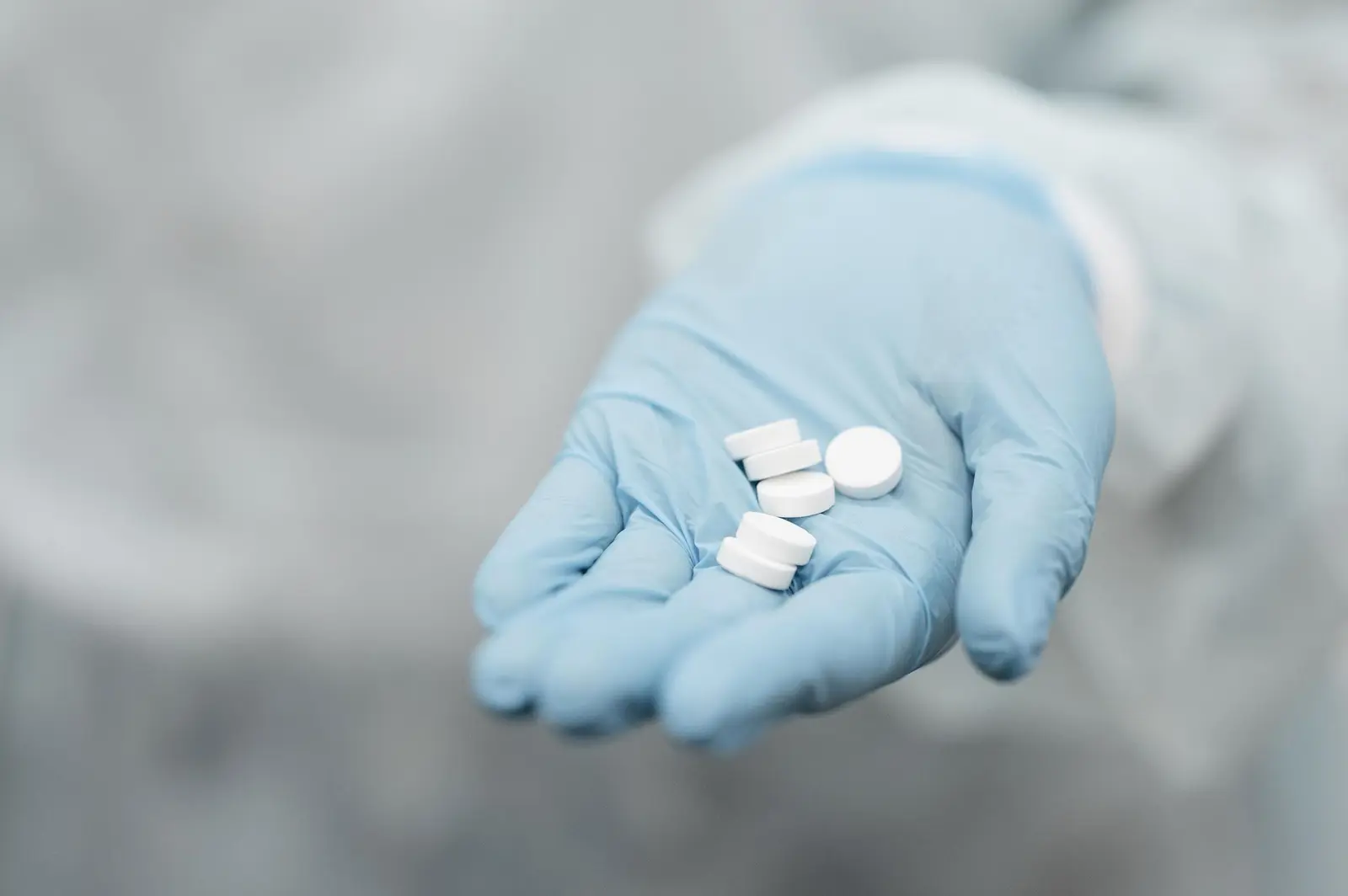
How Does Gabapentin Make You Feel?
Key Points
- Gabapentin is an anticonvulsant drug that’s FDA-approved to treat seizures and nerve pain resulting from shingles.
- Gabapentin can be used off-label to treat diabetic pain, restless legs syndrome, and even alcohol use disorder.
- Although not considered a controlled substance by the federal government, Gabapentin has been regulated by several Southern states due to its increased risk for substance use and addiction.
- Common side effects of gabapentin include nausea, headache, swelling of the legs and feet, fever, and sore throat.
- More serious side effects can occur from taking gabapentin and may include loss of balance, drowsiness, dizziness, and increased seizures.
- Other risks of gabapentin include allergic reactions, suicidal thoughts, withdrawal effects, substance use disorder, and overdose (when mixed with opioids).
- Signs of substance use disorder include intense drug cravings, drug use in risky situations, and experiencing withdrawal symptoms when abstaining from the drug.
- Gabapentin should never be taken without a prescription, but recreational users report getting a high from the drug that’s similar to the effects of marijuana.
- When combined with opioid drugs, gabapentin can be particularly dangerous and may even lead to a fatal overdose.
- Signs of an overdose from gabapentin mixed with opioid drugs may include constricted pupils, clammy skin, blue lips, and gurgling or snoring sounds coming from the mouth.
- An overdose on gabapentin and opioid drugs should be treated as a life-threatening emergency; seek immediate medical attention.
Gabapentin may have different effects, depending on the individual. When taken as prescribed, this anticonvulsant medication is generally well-tolerated. Some people experience mild to severe side effects, however. Gabapentin is increasingly being misused and can pose a threat to recreational users, especially when combined with other substances such as opioid drugs.
The way gabapentin makes you feel could depend on whether or not you experience mild to severe side effects of the drug. Talk to your doctor before taking gabapentin to gauge your risk of unwanted side effects.
You should also tell your doctor about any other drugs or medications you’re currently taking, including any recreational substances, prescription drugs, over-the-counter medications, and even vitamins and supplements, as some of these may interact with gabapentin.
What Is Gabapentin?
Gabapentin is a prescription drug approved by the Food & Drug Administration to treat seizures, partial seizures, and nerve pain resulting from shingles (also known as postherpetic neuralgia). It is sometimes prescribed off-label to treat other conditions such as nerve pain resulting from diabetes, as well as restless legs syndrome.
This medication is part of a class of drugs known as antiepileptics. It is available in various formulations, including both immediate-release and extended-release versions. Brand names of gabapentin include Gralise, Horizant, and Neurontin.
The U.S. Drug Enforcement Agency hasn’t classified gabapentin as a controlled substance at the federal level. However, some states, including Alabama, Tennessee, Kentucky, and Virginia, have regulated it due to its potential for abuse and addiction.
If your doctor recommends a prescription for gabapentin, be sure to tell them about any history of drug or substance use disorder. These risk factors could make you more vulnerable to any addictive properties of the drug.
Side Effects of Gabapentin
Gabapentin has been linked to some unwanted side effects. These side effects may be mild or serious.
Common Side Effects of Gabapentin
People taking gabapentin have reported common side effects such as:
- Fever
- Chills
- Sore throat
- Nausea
- Vomiting
- Trouble talking
- Tremors
- Swelling in feet or legs
- Headache
- Fatigue body aches
If these gabapentin side effects become bothersome or persist for more than a few days, contact your healthcare provider.
Serious Side Effects of Gabapentin
Some serious side effects of gabapentin have been reported, including:
- Drowsiness
- Weakness
- Dizziness
- Problems with balance
- Increased seizures
If you experience these serious adverse effects as a result of taking gabapentin, contact your healthcare provider right away or call 911 if necessary.
Risks of Gabapentin
The risk of substance abuse and addiction posed by gabapentin is becoming more widely recognized. There are other risks associated with this prescription anticonvulsant that should be considered as well. Some of these risks may include:
- Allergic reactions
- Skin reactions
- Extreme drowsiness
- Suicidal thoughts
- Withdrawal symptoms
- Respiratory depression
- Mental health effects in children
Gabapentin is only available by prescription and, due to the risks, should only be taken under the direct guidance and supervision of a medical professional. If you have a history of breathing problems, depression, or suicidal thoughts, be sure to tell your doctor before they prescribe gabapentin. There could be other medications that are safer for you to use.
Digging In: How Does Gabapentin Make You Feel?
Aside from experiencing specific unwanted side effects from gabapentin, some people abuse this drug because they say it causes euphoric effects. Anecdotal evidence indicates it may cause an effect similar to that of marijuana, including a feeling of relaxation and mild sedation.
While there’s no evidence that gabapentin itself is addictive, it may increase the effects of opioid drugs, causing recreational drug users to combine these two substances. This is a dangerous practice that may increase the risk of a fatal overdose.
How does gabapentin affect mood and emotions?
It varies. Gabapentin may affect individuals differently, including their mood and emotions. While some report that gabapentin has a pleasant, relaxing effect, the drug can cause agitation, depression, and even suicidal thoughts in others.
Signs of Substance Use Disorder
Taking gabapentin without a prescription or mixing it with opioid drugs can increase the risk for developing a substance use disorder (SUD), a serious condition that requires professional treatment. Signs and symptoms of SUD include:
- Intense cravings for the drug
- Spending an excessive amount of time obtaining the drug, using the drug, or recovering from intoxication
- Needing more of the drug to achieve the same “high” (i.e., building tolerance)
- Unsuccessfully trying to stop using the drug or limit use
- Using the drug in risky situations, such as while driving
- Using the drug repeatedly, even though it’s worsening a mental or physical health condition
- Continuing to use the drug even though it’s causing problems in relationships
- Continued use of the drug despite its making it hard to fulfill responsibilities at work, home, or school
- Experiencing withdrawal symptoms when not using the drug
If you or a loved one is demonstrating two or more of these symptoms, it may indicate a mild substance use disorder. However, don’t delay treatment. Substance use disorders tend to progress quickly. When severe, they can be harder to treat.
Signs of Gabapentin-Opioid Overdose
Someone who abuses opioid drugs may be more likely to experience a life-threatening overdose if they combine opioids with gabapentin to increase the effects of the opioid. Thus, if you suspect a loved one is using gabapentin, opioids, or both, it could be essential to know the signs of an overdose:
- Pinpoint pupils
- Cold, clammy skin
- Bluish fingernails or lips
- Slurred speech
- Blurred vision
- Limp arms or legs
- Trouble speaking
- Vomiting
- Making gurgling or snoring sounds
- Slowed or raspy breathing
- Unresponsiveness; loss of consciousness
- Slow or faint pulse
Signs of an overdose are life-threatening and should be treated as a medical emergency. Call 911 or go to the nearest emergency room.
Substance Abuse Treatment
If you suspect a loved one is abusing gabapentin, opioids, or any other drug, help is available. Substance abuse and rehabilitation services save lives. With evidence-based therapies and compassionate support from trained professionals, recovery is within reach.
Your treatment options may include medication-assisted detox, inpatient and partial hospitalization services, outpatient treatment, and relapse prevention support. Reaching out for the help you need is a brave act of self-compassion that could reap lifelong rewards.
Frequently Asked Questions About Gabapentin Effects
Is gabapentin similar to Xanax?
Yes and no. Gabapentin may have similar sedative and anti-anxiety effects. However, Xanax is a benzodiazepine, and gabapentin is an antiepileptic. Xanax is classified as a controlled substance at the federal level, whereas gabapentin is only regulated in a handful of states.
Is gabapentin an opioid or narcotic?
No. Gabapentin is an anticonvulsant drug. However, it has recently been linked to opioid abuse, including a number of fatal overdoses. Some states have begun to regulate the use of gabapentin as a result.
How do you take Neurontin?
Neurontin is a brand name of gabapentin. It should only be taken as prescribed by a doctor. Never adjust your Neurontin dose without consulting your healthcare provider. They may want to titrate your dose to reduce any uncomfortable withdrawal symptoms. Likewise, never increase your dose of Neurontin without talking to your doctor, even if you feel the medication isn’t working. Doing so could result in serious health effects.
Is gabapentin a very strong painkiller?
Although it is sometimes used to treat nerve pain, gabapentin isn’t considered a pain medication in the traditional sense. It has a different mechanism of action and might not be effective for other types of pain. Like painkillers, gabapentin has been linked to prescription drug abuse.
Sources
[1] [2] [3] [4] Gabapentin: Uses, dosage, side effects, warnings. Drugs.com. (n.d.-n). https://www.drugs.com/gabapentin.html
[5] Lennox, R., & Mangin, D. (2019, January 14). Gabapentin misuse. CMAJ : Canadian Medical Association journal = journal de l’Association medicale canadienne. https://pmc.ncbi.nlm.nih.gov/articles/PMC6333539/
[6] Gabapentin (Neurontin): Uses, Side Effects, dosage & reviews. (n.d.-o). https://www.goodrx.com/gabapentin/what-is
[7] Abuse of opioid alternative gabapentin is on the rise • stateline. (n.d.-a). https://stateline.org/2018/05/10/abuse-of-opioid-alternative-gabapentin-is-on-the-rise/
[8] Growing role of gabapentin in opioid-related overdoses highlights misuse potential and off-label prescribing practices | clinical pharmacy and pharmacology | jama | jama network. (n.d.-r). https://jamanetwork.com/journals/jama/article-abstract/2796287
[9] What is substance use disorder?. Cleveland Clinic. (2025ai, July 7). https://my.clevelandclinic.org/health/diseases/16652-drug-addiction-substance-use-disorder-sud
[10] Recognizing opioid overdose – national harm reduction coalition. (n.d.-ah). https://harmreduction.org/issues/overdose-prevention/overview/overdose-basics/recognizing-opioid-overdose/


